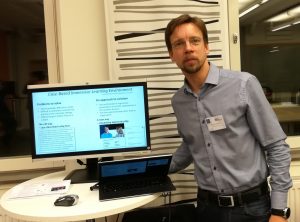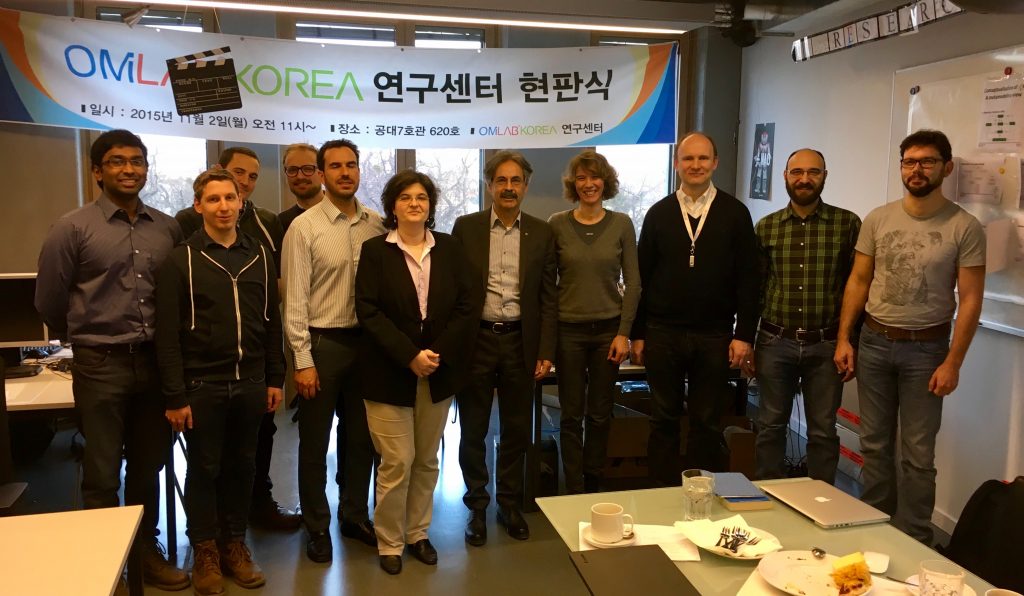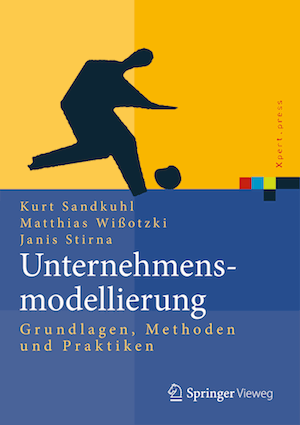Martin Henkel and Ilia Bider demonstrated the teaching concept of Apprenticeship Simulation at the EDOC conference in Stockholm. Apprenticeship Simulation makes use of multi-media sources to present realistic cases that the student can work with. The concept is specially designed for teaching subjects which include both tacit and explicit knowledge, such as Enterprise Modelling (EM). As a part of the demonstration, a Case-Based Immersive Learning Environment used for teaching at Stockholm University was shown.
Mahbub Ul Alam, A new employee
Hello everyone! I hope you all are having a lovely time. 🙂
I am Mahbub Ul Alam. I’ve recently started as a PhD student here at DSV.
My research interest is in ‘Cognitive internet of things (IoT) based smart health-care systems using deep learning and advanced machine learning’.
Potential research problem areas include:
1. Machine learning framework for IoT.
2. Intelligent data, i.e., machine-understandable, resource-recognition, knowledge representation, big data, deep learning, and advanced machine learning.
3. Clinical decision support systems in health-IoT.
4. Patient-centric personalized health-care systems and applications.
5. Distributed intelligent data processing in IoT.
I have a master’s degree at the Institute of Natural Language Processing (IMS), University of Stuttgart, Germany. In my master’s thesis, I worked to understand the hidden layer mechanisms of deep neural networks in natural language processing (automatic speech recognition) domain.
I have a bit of work experience in software engineering at Samsung Research and Development Institute Bangladesh.
I believe in diversity, and love to explore new and fresh technological innovations. I like to think that every aspect of my previous experiences is helping me to move forward for my future career. I always keep in mind that, the central principle of my life is ‘Let all of us prosper together.’
The people are super nice and friendly here, and I am looking forward to working together with all of you at DSV.
Let all of us prosper together. 🙂
Mahbub
New book on participatory modeling
A new book on participatory enterprise modeling (EM) will come out later this summer.
This book is intended for anybody who wants to learn more about how to facilitate participatory modeling in practice and how to set up and carry out enterprise modeling projects. It does not require any in-depth knowledge about specific EM methods and tools, and can be used by students and lecturers for courses on participatory modeling, and by practitioners wanting to extend their knowledge of social and organizational topics to become an experienced facilitator and EM project manager.
J.Stirna, A.Persson: Enterprise Modeling: Facilitating the Process and the People, Springer, 2018, link
Three research application in Health Informatics are funded!
Three research applications from the IS unit researchers have been approved. The applications were all sent to the Stockholm County Council (SLL) – Stockholm University Call in October 2017.
KVALPA: What quality indicators in the patient journal’s free text are needed to measure the quality of care? The project aims to create an automatic method for this through machine learning. Project leader: Hercules Dalianis
IMPROVE JANUSMED WITH PROCESS MINING. The project is about developing safer drug prescription by evaluating and improving Janusmed with process mining. Janusmed is a decision support system that controls and warns whether there is a risk of serious drug interactions as well as side effects due to enhanced effects when co-administered with multiple drugs. Stockholm County Council (SLL) provides, develops and manages Janusmed. Janusmed is available today on the web via janusinfo.se and is also integrated with the SLL journal systems. To the best of our knowledge, process mining has not yet been applied in any research project in Sweden. Project leader: Paul Johannesson. Participants: Amin Jalali, Erik Perjons (and Uno Fors in a limited role).
CAPABILITY AND VALUE-BASED CHANGE ANALYSIS OF THE 1177 VÅRDGUIDEN. The aim of the project is to develop a method to support the management organization for the 1177 Vårdguiden at SLL in assessing and analyzing how change proposals of the 1177 service, including affects on the various actors involved in the network around the service – and estimates of costs and benefits for the various actors. The method is based on (1) network-based analysis of the values and abilities of the various stakeholders in the network, and (2) on existing enterprise architecture of the management organization – in form of enterprise models such as value, process and information models over the 1177 service. Project leader: Erik Perjons. Participants: Martin Henkel, Ilia Bider (and Anders Tell in a limited role).
Research visit at University of Vienna
Researchers of IS Unit visited OMiLAB – research group of Prof. Dimitris Karagiannis at Institute Computer Science and Business Informatics, at the University of Vienna, Austria and BOC AG. Discussions on using ADOxx tool for 4EM, Capability Driven Development, and future of modeling.
New book in German on Enterprise Modeling
Kurt Sandkuhl, Matthias Wißotzki, Janis Stirna, Unternehmensmodellierung: Grundlagen, Methode und Praktiken, Springer, 2013, ISBN 978-3-642-31093-5, available on SpringerLink
Best Paper Award
The paper ”Capability Driven Development – an Approach to Support Evolving Organizations” written by Janis Stirna, Janis Grabis, Martin Henkel and Jelena Zdravkovic has been awarded for being among the best papers in the Practice of Enterprise Modelling (PoEM) conference 2012. The paper describes how the concepts of goals, key performance indicators, capabilities, capability context and capability delivery patterns can be used to integrate organizational capability development with IS development.
Papers accepted for publication in journals and in the proceedings of the 18th Americas Conference on Information Systems (AMCIS 2012), Seattle, Washington, August 9-11, 2012
In this year a number of papers written by the members of IT management group and master students at KTH (that IT management group members has supervised on their master thesis work) were accepted for publication in International Journal of Social and Organizational Dynamics in Information Technology, International Journal of Innovation in the Digital Economy, International Journal of IT/Business Alignment and Governance and in the Proceedings of the 18th Americas Conference on Information Systems (AMCIS 2012).
The first paper is entitled “A Risk Based View of Influential Factors in IT Outsourcing Relationship for Large Multinational Companies “ and was written by Georg Hodosi, Lazar Rusu and Seungho Choo (former KTH-EMIS student). The paper has been accepted for publication in International Journal of Social and Organizational Dynamics in Information Technology, IGI Global, 2012.
The second paper is entitled “The impact of different organizational cultures on IT outsourcing relationship management” and was written by Seyedeh Parisa Aasi (KTH-EMIS student), Ivan Nunes (KTH-EMIS student), Lazar Rusu and Georg Hodosi. The paper has been accepted for publication in International Journal of Innovation in the Digital Economy, IGI Global, 2012.
The third paper is entitled “An Organizational Culture Perspective in Business-IT Alignment” and was written by Mohamed El-Mekawy, Ehsan Kaboudvand (former KTH-EMIS student) and Lazar Rusu. The paper has been accepted for publication in International Journal of IT/Business Alignment and Governance, IGI Global, 2012.
The fourth paper is entitled “Important Factors in IT Outsourcing Relationship, a Model Development and Verification in Major National Companies”, and was written by Georg Hodosi, Rickard Rickmo (former KTH-IT student), Jan-Kamil Rembisch (former KTH-IT student) and Lazar Rusu. The paper has been accepted for publication in Proceedings of the 18th Americas Conference on Information Systems (AMCIS 2012), Seattle, Washington, USA, August 9-11, 2012.




